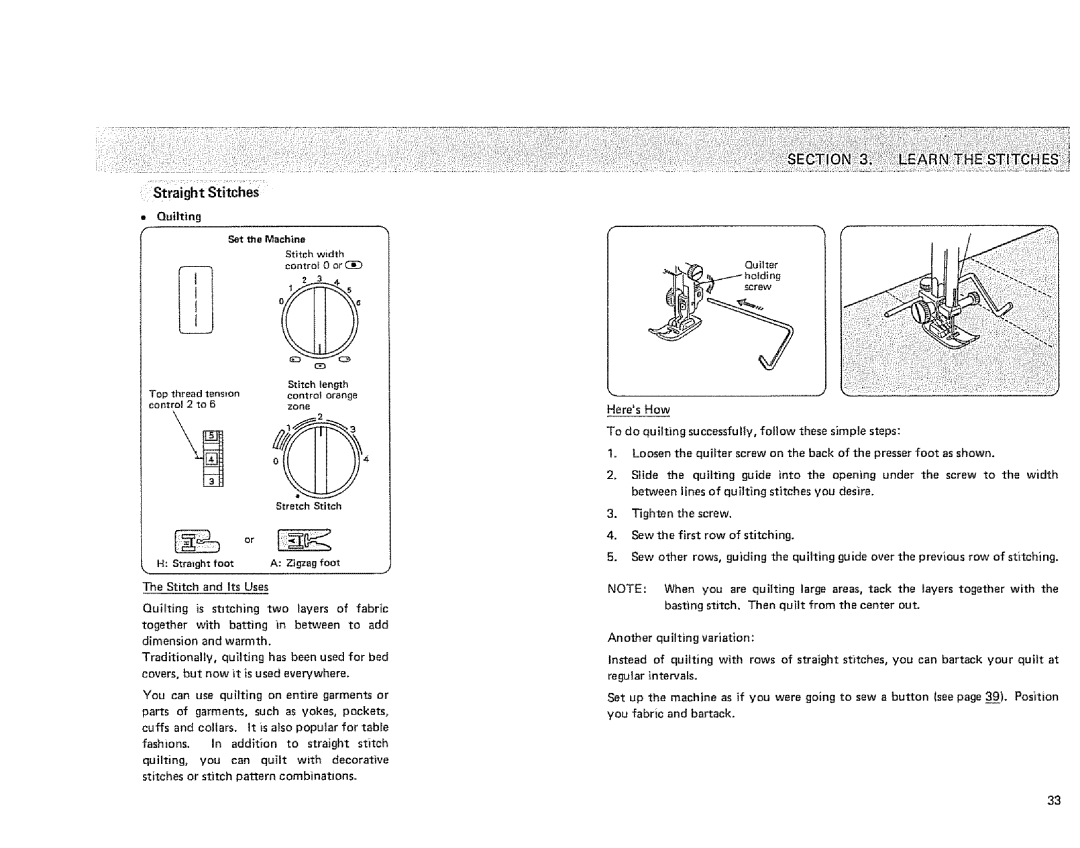
Straight Stitches
=Quilting
Set the Machine
Stitch width contro_ 0 or
| Stitch length |
Top thread tension | control orange |
control 2 to 6 | zone |
e
Stretch Stitch
or
H: Straight foot | A: Zigzag foot |
The Stitch and Its Uses
Quilting is stitching two layers of fabric
together with batting in between to add dimension and warmth.
Traditionally, quilting has been used for bed covers, but now it _sused everywhere.
You can use qu[Itlng on entire garments or parts of garments, such as yokes, pockets,
cuffs and collars. It is also popular for table
fashions. In addition to straight stitch
quilting, you can quilt with decorative stitches or stitch pattern combinations.
I _ | Quilter |
_'_ | holding |
JW£xorew
Here'sHow
To do quilting successfully, follow these simple steps:
1.Loosen the quilter screw on the back of the presser foot as shown.
2.Slide the quilting guide into the opening under the screw to the width between lines of quilting stitches you desire.
3.Tighten the screw.
4, Sew the first row of stitching.
5.Sew other rows, guiding the quilting guide over the previous row of stitching.
NOTE: | When | you are | quilting | large | areas, | tack | the layers together with the |
| basting | stitch. | Then quilt | from | the | center | out. |
An other qu iltlng variation:
Instead of quilting with rows of straight stitches, you can bartack your quilt at regular intervals.
Set up the machine as if you were going to sew a button (see page 39). Position you fabric and bartack.
33
